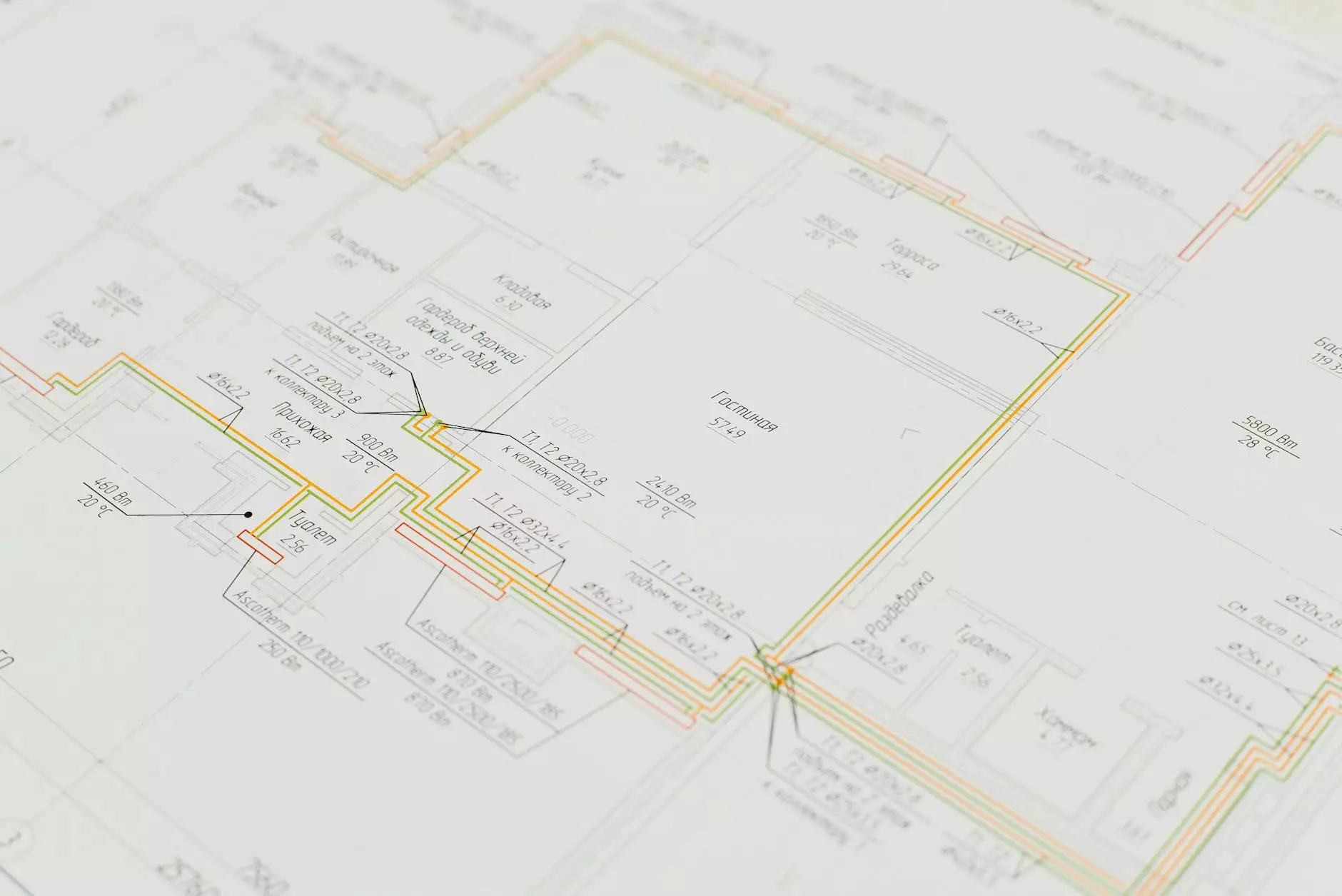Unlocking the Power of Medical Data Annotation: Transforming Healthcare Software Development

In the rapidly evolving landscape of healthcare technology, medical data annotation has emerged as a cornerstone for advancing AI-driven solutions, enhancing diagnostic accuracy, and accelerating innovative healthcare software development. As the demand for smarter, more precise medical tools grows, the vital role of high-quality, accurately labeled medical data cannot be overstated. Leading companies like keymakr.com are pioneering in providing top-tier medical data annotation services tailored to meet the complex needs of the healthcare industry.
The Significance of Medical Data Annotation in Healthcare Innovation
At the heart of modern healthcare is the integration of advanced artificial intelligence (AI) and machine learning (ML) algorithms. These technologies are transforming patient care, medical research, and clinical workflows. However, the effectiveness of AI models depends heavily on the quality and quantity of training data, which is where medical data annotation plays a pivotal role.
Why Is Medical Data Annotation Essential?
- Enhances Diagnostic Precision: Properly annotated medical images and records enable AI systems to accurately identify abnormalities such as tumors, lesions, or fractures.
- Facilitates Machine Learning Training: High-quality labeled datasets are critical for training reliable models capable of making clinical decisions.
- Supports Personalized Medicine: Annotated genetic and medical data aid in customizing treatments based on individual patient profiles.
- Accelerates Medical Research: Precise data annotation accelerates the development of new drugs, therapies, and diagnostic tools.
- Improves Healthcare Software Development: Accurate annotation ensures that healthcare applications function effectively, improving overall patient outcomes.
Types of Medical Data Annotation in Healthcare
The diversity of medical data requires specialized annotation techniques tailored to various data types. Below are some of the most common types used in healthcare software development.
1. Image and Medical Imaging Annotation
This involves meticulously labeling MRI, CT scans, X-rays, ultrasounds, and other imaging modalities. Common annotations include outlining tumors, identifying organ boundaries, and tagging pathological features. Precision in this domain directly impacts the accuracy of AI-driven diagnostic tools.
2. Text and Clinical Notes Annotation
Clinical notes, electronic health records (EHRs), and pathology reports are rich sources of information. Annotating these texts involves tagging diseases, symptoms, medications, and patient history to assist in natural language processing (NLP) applications and clinical decision support systems.
3. Signal Data Annotation
Electrocardiograms (ECGs), EEGs, and other signal data are vital in diagnosing cardiac, neurological, and muscular conditions. Annotating these signals helps develop algorithms for automated detection and monitoring.
4. Genomic Data Annotation
Genomic annotations involve labeling gene sequences, mutations, and variants. This data is crucial for precision medicine, enabling the development of targeted therapies.
Challenges in Medical Data Annotation and How to Overcome Them
While medical data annotation offers immense benefits, it also presents unique challenges that require meticulous attention and expertise.
High Complexity and Expertise
Medical data often involves complex, nuanced information that demands specialized knowledge from trained annotators, such as radiologists or medical professionals, to ensure labeling accuracy.
Data Privacy and Security
Handling sensitive health data necessitates strict compliance with regulations like HIPAA and GDPR. Its secure processing and anonymization are critical to maintain patient privacy.
Volume and Scalability
The vast amount of medical data generated daily requires scalable annotation solutions. Automated tools complemented by expert validation help meet this demand efficiently.
Consistency and Quality Control
Ensuring uniformity across annotations is vital. Employing rigorous quality assurance protocols, such as double annotation and continuous training, maintains high standards.
Why Leading Healthcare Software Developers Trust KeyMakr for Medical Data Annotation
Companies like keymakr.com have established themselves as industry leaders by offering comprehensive medical data annotation services tailored specifically for healthcare software development. Their expertise encompasses:
- Specialized Medical Professionals: Annotators with medical backgrounds ensure precise and clinically relevant labels.
- Advanced Annotation Tools: Cutting-edge platforms facilitate efficient, accurate data labeling across diverse modalities.
- Strict Compliance: Adherence to healthcare regulations protects patient data and maintains trust.
- Scalable Solutions: Flexible workflows accommodate projects of any size, from startups to large institutions.
- End-to-End Support: From project consultation to quality control, comprehensive services streamline development timelines.
Impact of Accurate Medical Data Annotation on Healthcare Software Development
The quality of medical data annotation directly correlates with the success of healthcare software solutions. Precise annotations enable:
1. Development of Reliable Diagnostic AI
Annotating medical images and records with high accuracy allows AI models to reliably detect diseases and anomalies, leading to faster diagnosis and improved patient outcomes.
2. Enhanced Clinical Decision Support Systems (CDSS)
Annotated data feeds into CDSS, helping clinicians identify treatment options and reduce diagnostic errors.
3. Improved Patient Monitoring Applications
Accurate signal data annotations enable continuous and automated patient monitoring, providing real-time alerts and intervention support.
4. Accelerating Medical Research and Drug Discovery
With well-annotated genomic and clinical data, researchers can identify patterns, accelerate biomarker discovery, and develop targeted therapies more efficiently.
The Future of Medical Data Annotation in Healthcare Software Development
As technology advances, the role of medical data annotation will become even more integral to healthcare innovation. Emerging trends include:
- Automation and AI-Assisted Annotation: Integrating AI algorithms to speed up annotation processes while maintaining accuracy.
- Integration of Multimodal Data: Combining imaging, text, signals, and genomics for comprehensive datasets that support holistic AI models.
- Enhanced Data Privacy Techniques: Employing federated learning and secure multiparty computation to protect sensitive data.
- Global Collaborative Annotation Networks: Building worldwide expert pools to ensure culturally diverse and comprehensive datasets.
Choosing the Right Partner for Your Medical Data Annotation Needs
In the complex field of healthcare software development, selecting a trusted partner with proven expertise in medical data annotation is crucial. Factors to consider include:
- Industry Experience: Proven track record in medical data annotation projects across different modalities and data types.
- Compliance and Security: Ability to handle sensitive data in accordance with healthcare regulations.
- Quality Assurance: Robust processes for ensuring annotation accuracy and consistency.
- Technological Capabilities: Access to state-of-the-art annotation tools and scalable workflows.
- Expertise of Annotators: Medical backgrounds and ongoing training of annotation specialists.
Conclusion: The Transformative Power of Medical Data Annotation in Healthcare Software Development
In summary, medical data annotation is the backbone of cutting-edge healthcare software solutions. It empowers AI to deliver accurate diagnostics, personalized treatments, and innovative medical research. As the industry continues to evolve, partnerships with specialists like keymakr.com will be pivotal in harnessing the full potential of medical data.
By investing in high-quality data annotation, healthcare organizations and software developers set the stage for a future where AI-driven medicine leads to better patient outcomes, reduced costs, and unprecedented medical breakthroughs. Embrace the power of precise, reliable medical data annotation today — the future of healthcare depends on it.









